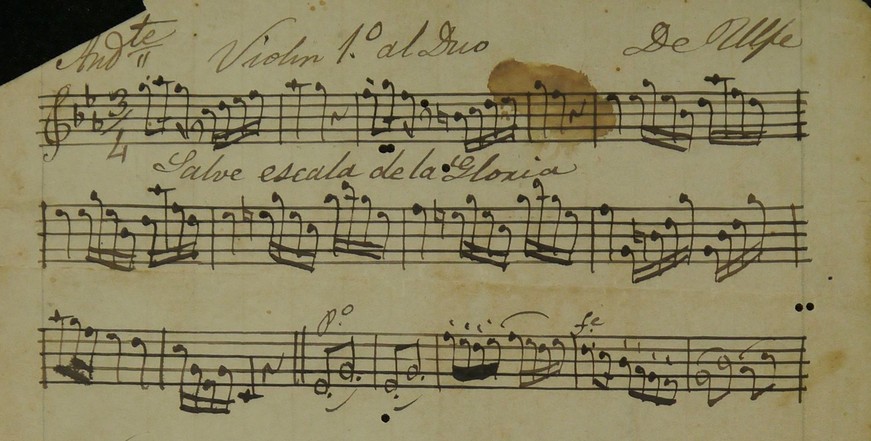Archiving Colonialism
The Collections of Musical Manuscripts from Peru
2022–2025
RFE12

Archivo Histórico de San Francisco (Lima)
Historic Peruvian music manuscripts have an extraordinary potential to unveil the idiosyncrasies of a conflicted nation forged through centuries of colonial heritage. In that sense, the period between 1821, when independence from Spain was declared, and 1883, when a lost war against Chile revealed the calamitous failure of a national project, happens to be of particular interest.
The project ‘Archiving Colonialism. The Collections of Musical Manuscripts from Peru’ deals with music archives and libraries with an emphasis on the Historical Archive of St. Francis of Lima, in which an abundance of musical written artefacts from the aforementioned time period is stored. Other religious and secular archives covering the 17th to 20th centuries are included with the purpose of contextualising and understanding the shift from the colonial to the postcolonial archival practices and the dialectics between impositions of European music and appropriations by the colonised population. Although actually not many sources survive, both the extant and the lost materials are informative for a value-based analysis of the evolution of archival practices in Peru.
Our central purpose is to reconstruct both individual and collective behaviours and to understand the entanglement of the cultural history, character, and meaning of music archives applying two complementing perspectives: on the one hand, we look at the institutions, authorities, and policies that governed the preservation of archives; on the other hand, we consider the individuals whose particular experiences are profiled by the manuscripts. This material evidence illustrates the diversity and multifaceted nature of an emerging nation’s cultural life, which still echoes today.
People
Project lead: Matteo Nanni
Research Associate: Daniel Kudó
